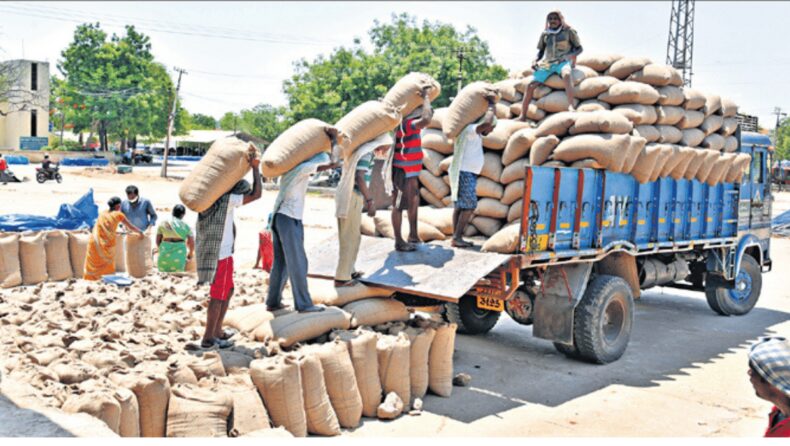India upholds its decision to ban exports of rice and wheat at the ongoing World Trade Organisation (WTO) meeting in Geneva. In the context of the objections raised by the member countries on the sanctions, India has explained the issue.
During last week’s WTO meeting, Senegal, EU and the US expressed their concerns over the ban and raised questions about the decision. They further stated ban could have an adverse impact on global markets.
India ban on broken rice
India dubbed as the world’s largest rice exporter has imposed a ban on shipments of broken rice from September 9.
Besides government mandated an export duty of 20 per cent on rice in a husk which is either paddy or rough. It also includes husked (brown rice), semi-milled and fully milled rice. The ban does not apply to the export of premium rice quality basmati rice and parboiled rice.

The exemption on parboiled rice is to foster domestic supplies among areas having less production in the ongoing Kharif season.
The export ban is to meet the demand of domestic needs like ensuring adequate availability of broken rice for poultry and other animal fodder purpose. The measure also assists in making ethanol production and supports the union government scheme of ethanol blending programme.
The Western African country Senegal is India’s major importer of broken rice and its products. Senegal asked India to keep trade open in these tough times and ensure adequate food for our people.
Usage of the Peace clause
At the WTO meeting, member countries like Thailand, Japan, Australia, New Zealand, Uruguay, Paraguay, Brazil, Canada and the US seek consultations with India concerning the use of the peace clause. The clause is used to protect their food programmes against trade disputes.
The government provided a 10 per cent subsidy to support paddy growers who exceed the ceiling limit, so in April 2022 India used the peace clause for the third time.

Union Government informed WTO on the operation of the peace clause for providing additional measures to paddy farmers for marketing the crop and also for domestic food security needs of its substandard population.
As per the peace clause, 164 member WTO countries abstain from challenging any breach in the determined subsidy ceiling offered by the developing nation at the WTO dispute settlement forum.
The 10 per cent limit is fixed on the value of food production for developing countries like India. Subsidies exceeding the ceiling limit are considered trade misrepresentations.
The world’s largest exporter accounts for 40 per cent of global rice shipments and exports to over 150 countries. Estimates suggest that India reached 21.5 million tons in the year 2021.
India’s total shipment is more than following four biggest exporters of rice I.e. Thailand, Vietnam, Pakistan and the US.
Dwindle in rice production
In the ongoing Kharif season, due to average monsoon rainfall, rice production has decreased by 5.6 per cent compared to last year.
Peak seasons of grain production received less fall resulting in a decrease in production. Rice-producing states such as West Bengal, Bihar and Uttar Pradesh received 30 to 40 per cent less rainfall than normal, according to officials of the agriculture department.

The government of India announced that in the Kharif season rice production could fall by 10 to 12 million tons, which suggests that crop yield could drop by approximately 7 per cent annually.
South East Asian countries are most affected
With the ban on rice exports India, the Philippines and Indonesia are the major affected countries in the Asia region. The Philippines imports more than 20 per cent of its rice consumption needs, ban on the Indian variety of rice will increase other varieties of rice prices. The second affected country, Indonesia imports 2.1 per cent of its rice consumption needs.
On the other side, a ban on rice exports by India would be beneficial for countries like Thailand and Vietnam. Because they are next to India in terms of exporters of rice and these countries will fill in the shoes of India and supply rice to the needful countries.
Wheat banned in summer
Earlier in May 2022, India suspended the shipment of wheat to control soar in domestic prices have put pressure on food security in the country and also in neighbouring and vulnerable countries.
India is the world’s second-biggest wheat producer after china and supplies less than 1 per cent of the global wheat trade.













